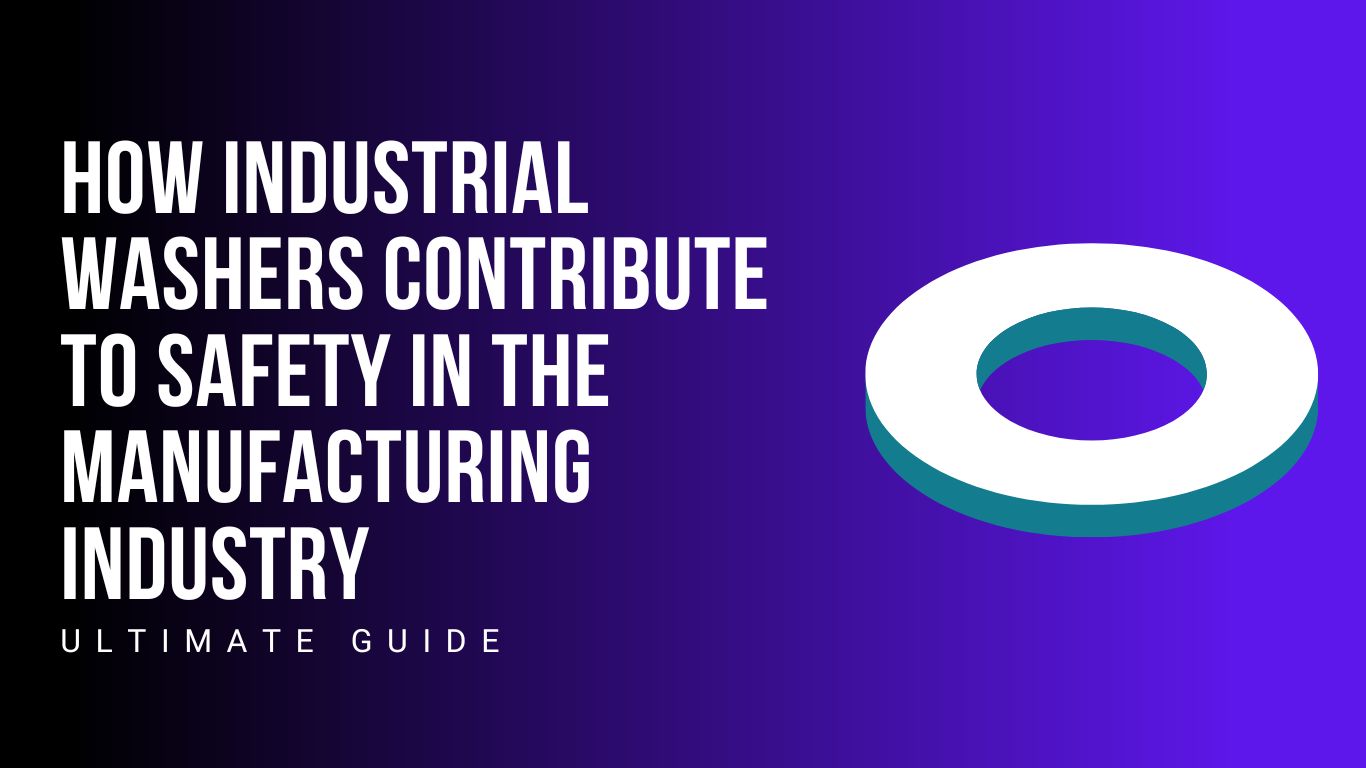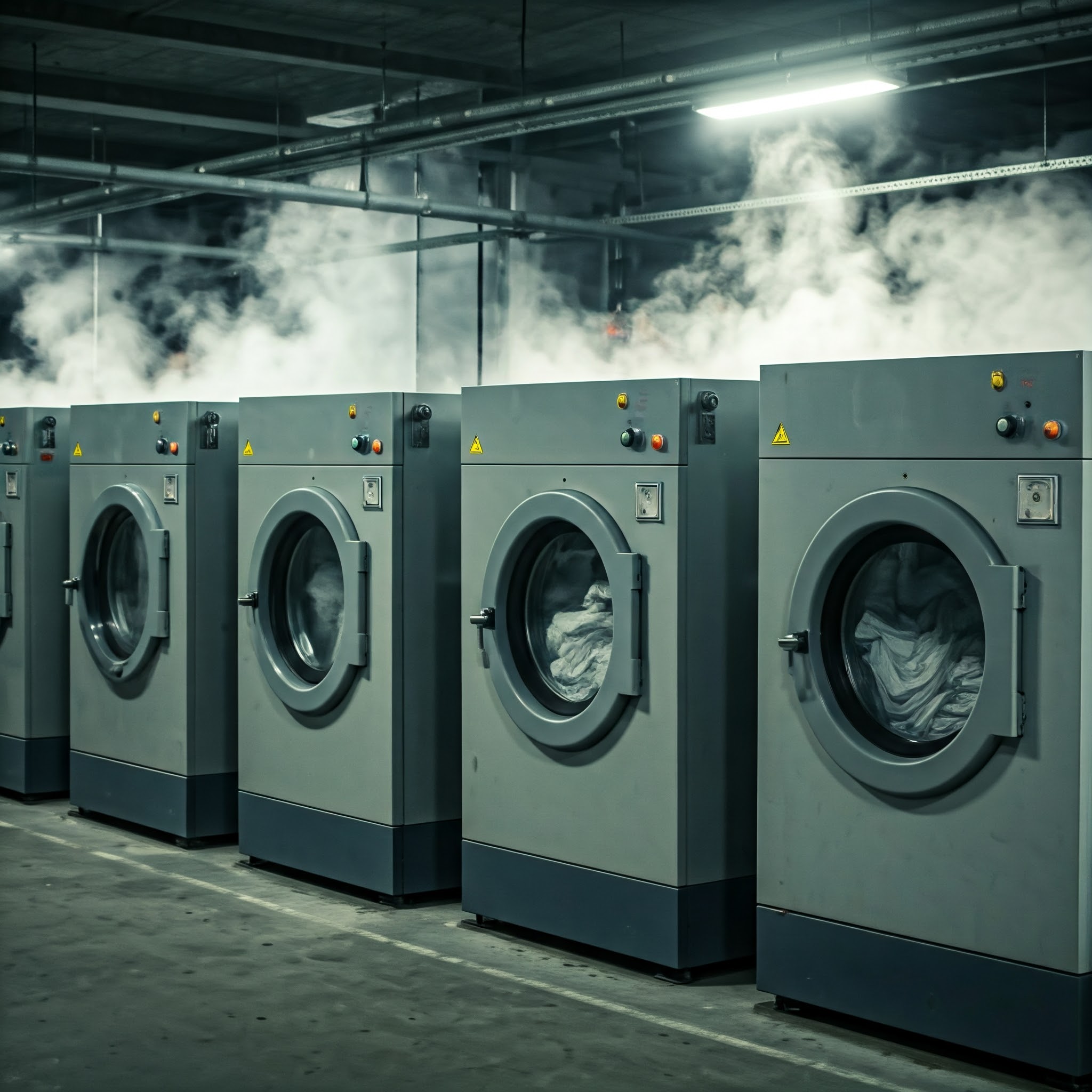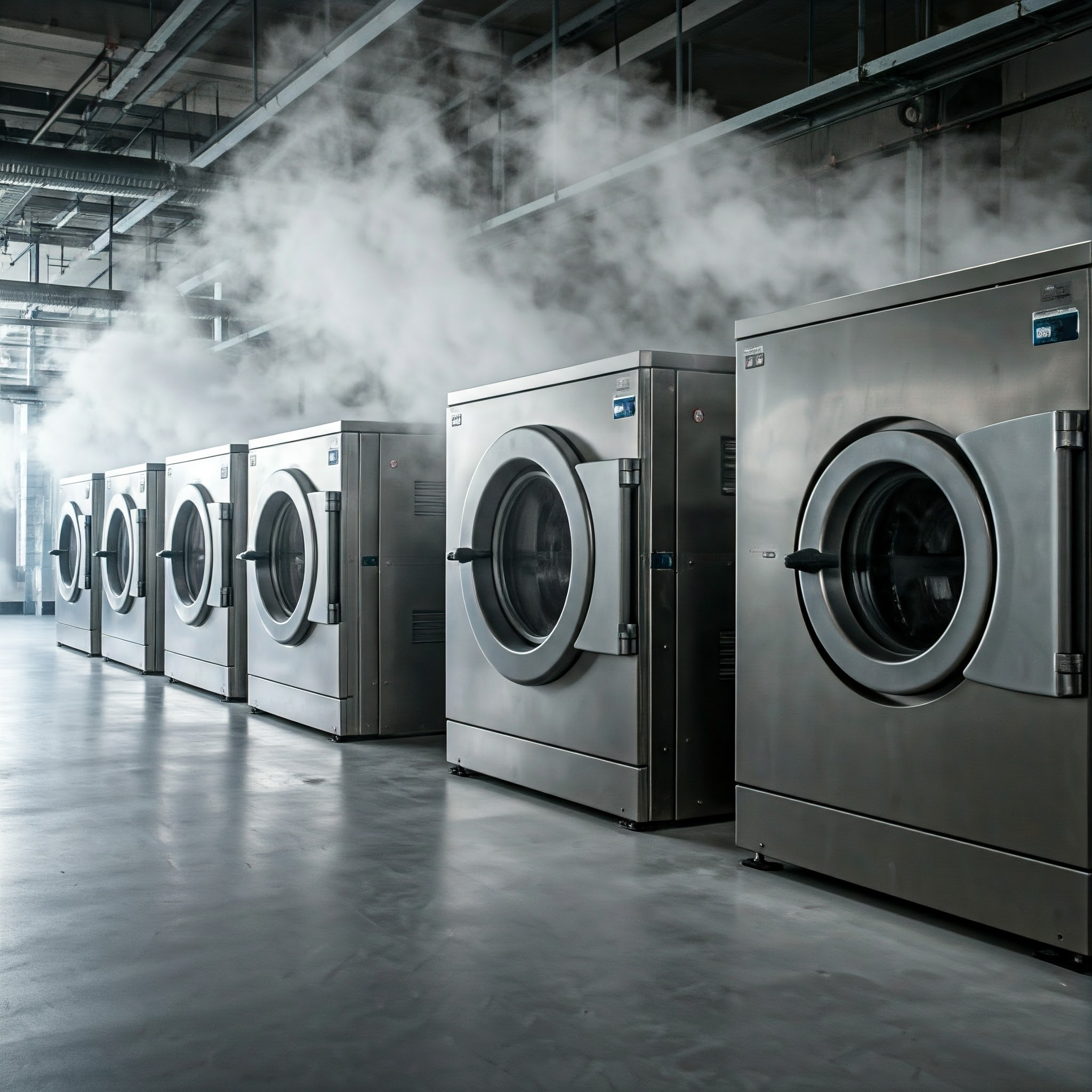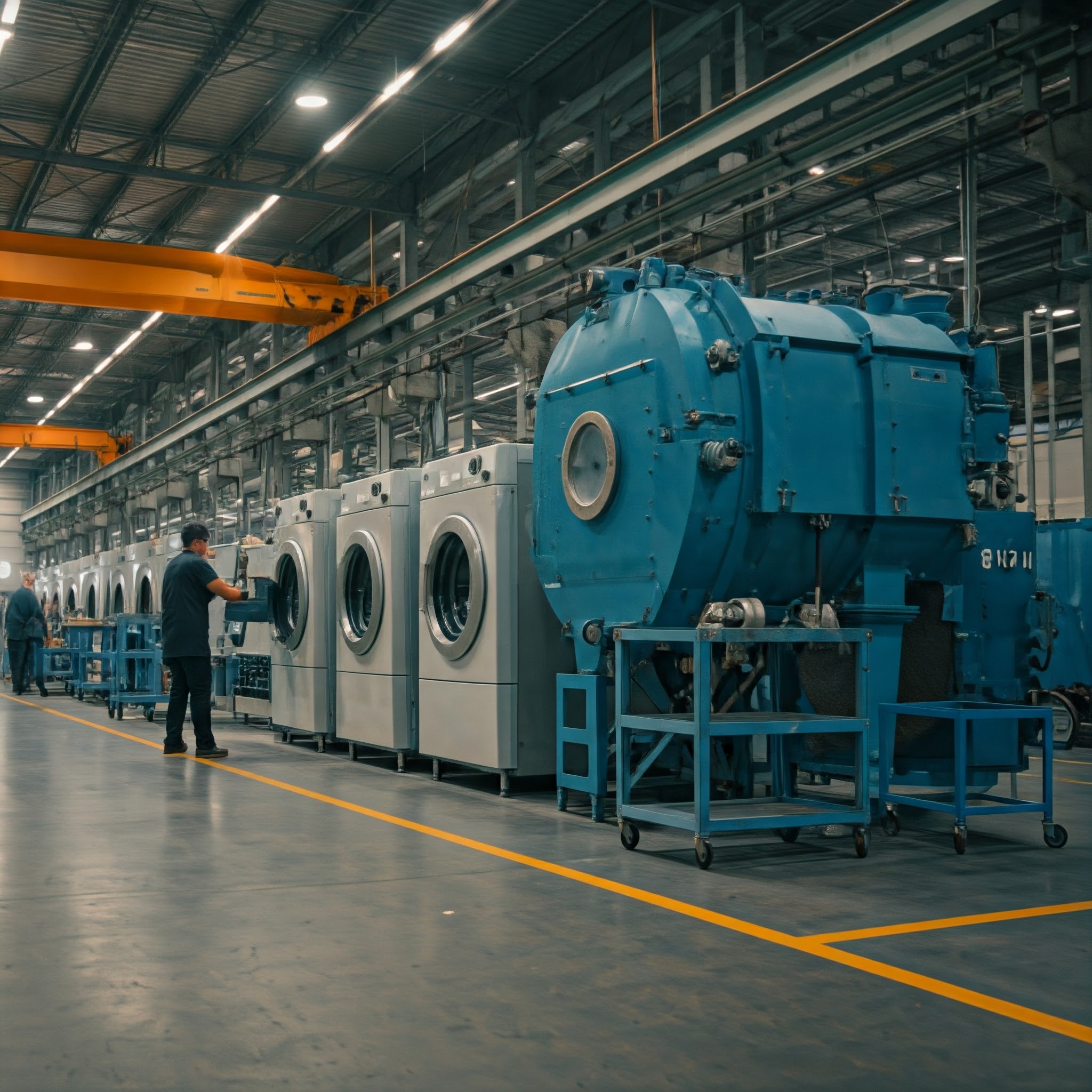How Industrial Washers Contribute to Safety in the Manufacturing Industry | Ultimate Guide

Industrial washers are often overlooked components in manufacturing processes, yet they play an essential role in ensuring the safety and reliability of machinery and equipment. Whether you're working in an assembly line, heavy machinery, or automotive production,industrial washers help to reduce risk and improve safety outcomes. In this comprehensive guide, I'll take you through the crucial role of industrial washers in the manufacturing industry, and how they contribute to a safer work environment.
Table of Contents:
- What Are Industrial Washers?
- The Role of Industrial Washers in Manufacturing Safety
- Types of Industrial Washers
- How Industrial Washers Prevent Equipment Failure
- Key Benefits of Using Industrial Washers
- Choosing the Right Industrial Washer for Safety
- Conclusion
What Are Industrial Washers?
Industrial washers are small, flat rings used in mechanical assemblies. They are designed to distribute the load of a fastener like a bolt or nut. This distribution helps prevent damage to the surfaces being fastened. Washers can come in various shapes, sizes, and materials, but their primary function remains to provide a secure, safe fastening system that reduces the risk of equipment failure and accidents in manufacturing environments.
The most common type of industrial washers include:
- Flat Washers: These provide load distribution and protect surfaces.
- Lock Washers: These prevent fasteners from loosening due to vibrations.
- Spring Washers: These absorb shock and vibration, maintaining tightness.
- Sealing Washers: These prevent leakage and improve safety in sealed environments.
The Role of Industrial Washers in Manufacturing Safety
In any manufacturing facility, safety is a top priority. Industrial washers contribute to safety in several ways:
- Preventing Equipment Failure: Industrial washers help secure fasteners, ensuring that bolts and nuts remain tight. When fasteners loosen, it can lead to equipment malfunction, breakdowns, and even catastrophic failure, putting workers at risk. A well-secured bolt or nut prevents unnecessary maintenance costs and avoids production delays, thereby maintaining a safer working environment.
- Reducing Risk of Vibration Damage: In manufacturing settings, machinery often operates at high speeds or under significant vibration. Lock washers (such as external tooth lock washers or spring lock washers) are specifically designed to prevent fasteners from loosening due to vibration. This means less risk of machinery failure, and a more reliable and safe production line.
- Protecting Surfaces from Damage: Washers like flat washers are used to distribute the load evenly across a surface. Without them, the pressure from a bolt could cause damage to sensitive parts of machinery, creating sharp edges or indentations that can lead to equipment failure. By providing even pressure distribution, Industrial washers ensure that machinery remains intact and safe for use.
- Sealing and Preventing Leaks: Certain washers, such as sealing washers and gasket washers, are used in critical systems where preventing leakage is essential for safety. For example, they are used in hydraulic and pneumatic systems, where leaks can result in dangerous spills, injuries, or equipment breakdowns. By creating a secure seal, these washers ensure that no hazardous materials leak out, keeping the workplace safe.

Types of Industrial Washers
Understanding the types of Industrial washers is key to knowing how they contribute to safety in manufacturing. Here's a breakdown of the most commonly used washers and how they protect both equipment and workers:
- Lock Washers: Lock washers are designed to prevent fasteners from loosening, even under heavy vibration. Some of the most common types of lock washers are:
- External tooth lock washers – These washers have teeth on the outside edge that grip the material, preventing fasteners from moving.
- Internal tooth lock washers – These washers feature teeth on the inner edge and help secure the bolt or nut by digging into the surface.
- Split lock washers – These have a split in the washer that springs into action and creates tension, preventing the fastener from loosening.
- Flat Washers: Flat washers are used to distribute the load of a fastener, ensuring that the force is evenly spread over the surface. This prevents damage to delicate materials and helps keep equipment intact.
- Spring Washers: Spring washers are made from flexible materials and are designed to absorb shock and vibration. This makes them ideal for use in high-vibration environments where stability is critical.
- Sealing Washers: Sealing washers prevent leaks, making them crucial in systems where fluids or gases are involved. They help maintain a tight seal and prevent dangerous leaks.
- Specialty Washers: Wedge lock washers, square washers, and other specialized washers offer specific benefits for unique applications. These washers are designed to suit particular types of machinery or operational conditions, helping enhance safety in specific manufacturing processes.
How Industrial Washers Prevent Equipment Failure
Equipment failure can be a major safety concern in manufacturing. Industrial washers help reduce the risk of failure by performing several vital functions:
- Ensuring Proper Tension and Load Distribution: Industrial washers help to evenly distribute the load of a fastener, which prevents the material being fastened from deforming or breaking. This helps maintain the integrity of critical equipment and reduces the likelihood of mechanical failure.
- Preventing Fastener Loosening: Over time, vibrations and external forces can cause fasteners to loosen. This can lead to hazardous situations like falling machinery parts or failure of critical components. Lock washers and spring washers counteract this by providing constant pressure to keep fasteners secure.
- Preventing Corrosion: Some industrial washers are made from stainless steel or brass, which are resistant to rust and corrosion. Using these materials helps prevent the degradation of fasteners, which could otherwise lead to failures or leaks, putting workers and equipment at risk.
- Enhancing Shock Absorption: For machinery that undergoes intense stress, Spring washers absorb shocks and prevent damage to both the machinery and fasteners. This reduces the risk of accidents, injuries, and unplanned maintenance.

Key Benefits of Using Industrial Washers
In addition to improving safety, industrial washers offer several other benefits that make them indispensable in manufacturing environments:
- Improved Durability and Longevity: Washers made from materials like stainless steel, brass, and carbon steel improve the durability of fasteners. This reduces the frequency of replacements and helps maintain the longevity of machinery and equipment.
- Cost Savings: By preventing fastener loosening, damage to parts, and failures, washers contribute to significant long-term cost savings in repairs and replacements. They are an essential part of reducing downtime in manufacturing environments.
- Customization: There are numerous types of washers designed to meet specific needs. Whether you need shim washers, Sealing washers, or washer plates, customization helps ensure the safety and efficiency of machinery.
- Improved Performance: By ensuring tight connections and reducing wear and tear on fasteners, washers help improve the performance of machinery, contributing to a safer, more efficient manufacturing process.

Choosing the Right Industrial Washer for Safety
To fully benefit from the safety features of industrial washers, you need to choose the right type and material for your application. Here are a few considerations:
- Material Compatibility: Depending on the environment and the materials being used, you'll need washers that are resistant to corrosion, heat, and other factors. Stainless steel washers are commonly used in harsh environments.
- Load and Vibration Resistance: If your machinery experiences high levels of vibration, opt for lock washers or spring lock washers to prevent fasteners from loosening.
- Size and Fit: Ensure that the washer size matches the diameter of your bolts and nuts for optimal load distribution.
Conclusion
Industrial washers are crucial components that contribute to the overall safety, performance, and longevity of manufacturing machinery. By ensuring proper load distribution, preventing fasteners from loosening, and protecting surfaces from damage, washers help reduce the risks associated with equipment failure. Whether you're working with foundation bolts, anchor bolts, or stud bolts, industrial washers are essential to keeping machinery functioning efficiently and safely.
About Sachin Shim
Our range of shims includes metal, machine, industrial, precision, adjustable, machinery, engineering, custom, and alignment shims. These shims are designed for various applications, such as machinery alignment, fine adjustments in industrial-grade machines, engineering projects requiring steel shims, heavy-duty machinery requiring versatile metal shims, aerospace applications demanding precision stainless steel shims, automotive use requiring adjustable aluminum shims, precision engineering projects using high-quality brass shims, construction applications requiring durable plastic shims, specialized machinery needing customized shim solutions, and manufacturing processes requiring fine-tuning shims for precise alignment and accurate machine setup and leveling.
Author
Meet Sachin, our expert author in industrial materials with a deep understanding of Washers. With years of experience, Sachin brings valuable insights and expertise to this guide, making them a trusted source for all things related to Washers. Join us as we delve into the art of Washers with Sachin leading the way.
List Other similar blogs







